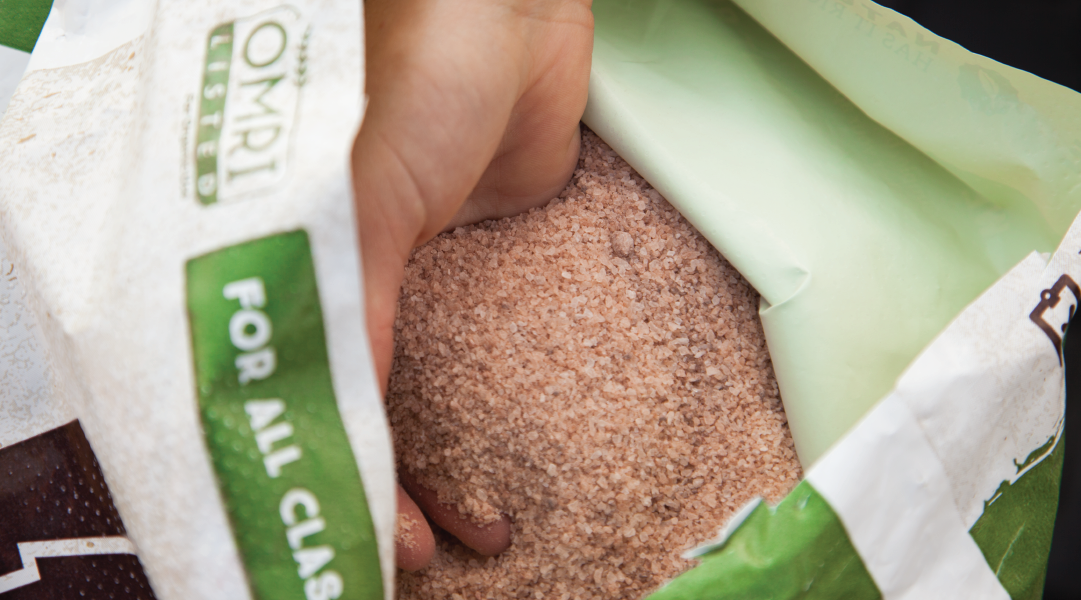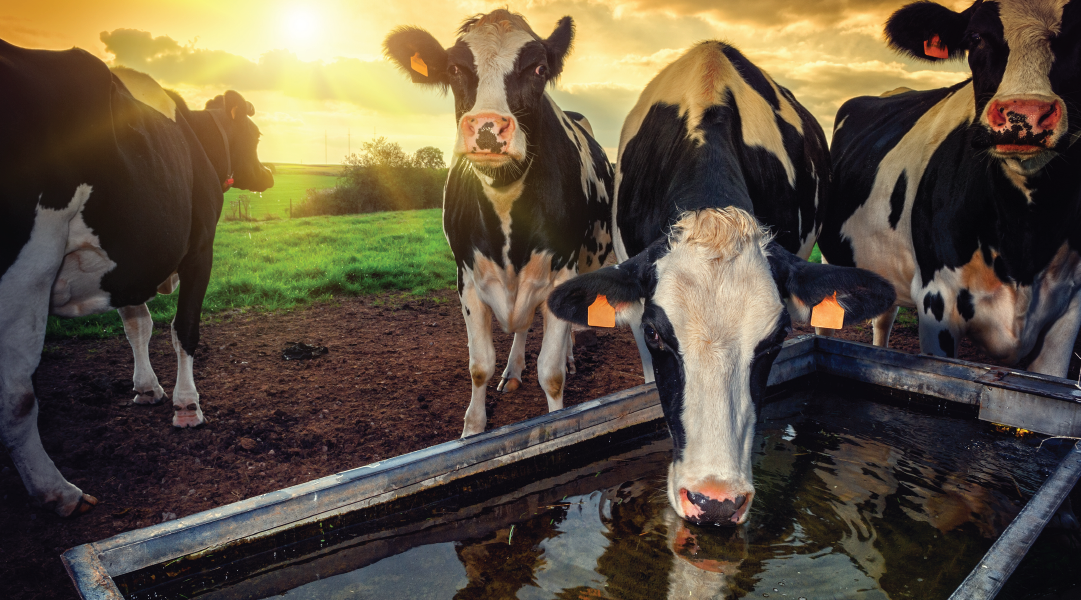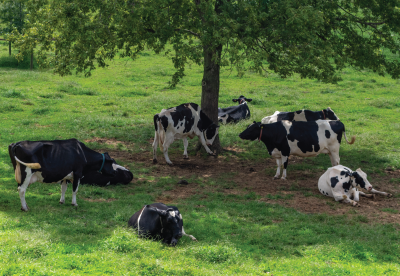Signs of Heat Stress
Cows sweat a lot less than humans and have a more difficult time naturally regulating their temperature. When you factor in dark coats, the physical stress of being outdoors, breeding, calving, lactating, etc...it’s no wonder your herd needs extra help. Remember that prevention and early intervention are the keys to your herd’s health and survival. Watch closely for the following symptoms before they turn into heat stroke:
- Labored, open mouth breathing (panting with necks outstretched)
- Slobbering
- Lethargy
- Trembling/lack of coordination
Consequences of Heat Stress
For both beef and dairy operations, heat stress can be hard on your animals and your production levels. Not all heat stress problems are noticeable while it is currently hot, some health concerns come later, such as:
- Lower body condition scores
- Decreased milk production
- Weaker immune systems
- Lower milk fat levels
- Rumen acidosis
- Poor meat quality
- Poor reproduction health and lower conception rates
How To Reduce Heat Stress
Here are some best practices that will help your cattle perform better and maintain greater profitability during the hotter seasons.
Watch Your Forecasts
Use a trusted weather source, and keep an eye on your upcoming temperature/humidity index. The United States Department of Agriculture (USDA) provides a region based map to help you watch for heat events in your area.
According to the University of Missouri, here are the temperature ranges to watch for:
- 25 - 65° F: Ideal temperatures
- 80°+ F: Reduced feed intake, physiological stress, offer cooling measures
- 90° + F: Dramatically reduced production, offer cooling measures
- 100° F, 20% humidity: Take serious cooling measures
- 100° F, 50% humidity: Danger zone, take serious cooling measures
- 100° F, 80% humidity: Lethal zone
Reduce activity during peak heat/evening hours
Your cattle's internal temperature will peak a couple hours after the environment does. So, avoid handling, processing, or transporting your herd during the afternoon and evening hours to reduce their stress. Cooler morning hours will be the best time to complete these active tasks.
Replenish Minerals
Your animals’ mineral levels deplete more quickly during hot summer months. As their respiration and perspiration rates increase, they will especially need extra electrolytes (sodium, potassium, magnesium, calcium). If you typically use blocks, consider switching to loose minerals and adding more mineral stations to increase their intake. You should also move minerals to shady areas so they are more accessible.

Shade
Providing shade is extremely important, especially for cattle with dark coats. Give your animals access to pastures with trees, or open buildings so they can take respite during the peak hours.
Water
Increase watering stations and position water sources near lounging areas. Be sure to keep water troughs clean and filled. Cattle will not want to drink from hot water sources so try and position them in the shade to encourage them to drink what they need. You can also spray water on mounds or pens where your cattle lie down to give them a cool resting place in the evenings.

Because of their coats, lightly spraying your cattle themselves can actually do more harm than good. Light mists can create an insulating layer on their coats and prevent heat from dissipating. If you plan to spray down your herd, be sure to use water droplets that are big enough to penetrate and soak into their hide.
Ventilation
Proper ventilation and air flow are another important practice to help your herd cool off. Open buildings to create a cross breeze, and use fans to move air to eliminate hot/stagnant pockets. You can also move animals to outside pastures or pens with adequate shade.
Protect Rumen Health
Heat stress can wreak havoc on your cattle’s rumen health. Animals naturally want to decrease their feed intake when it is hot, and this can cause a buildup of acid in their rumen. Offering rumen buffers to your herd will stabilize their ruminal pH, and help them absorb the nutrients they desperately need during the hot summer months.
Heat Stress Management With Redmond Minerals
Here at Redmond, we know that when your animals feel good, you feel good. Our delicious mineral supplements replenish lost electrolytes, provide a balanced profile of over 60 trace minerals, and naturally encourage water intake.
Redmond minerals can also help improve rumen health. Our mineral conditioner buffers rumen pH as efficiently as sodium bicarbonate but also increases nutrient absorption, binds to harmful toxins, aids fiber digestion, and is more cost effective than sodium bicarbonate.

We offer delicious mineral for beef operations, dairy operations, and all classes of livestock. Give Redmond a try this upcoming season and let us share our tasty and nourishing supplements to help you and your herd beat the heat this summer! Give us a call at  .
.
© 2024 Redmond Minerals Inc.

